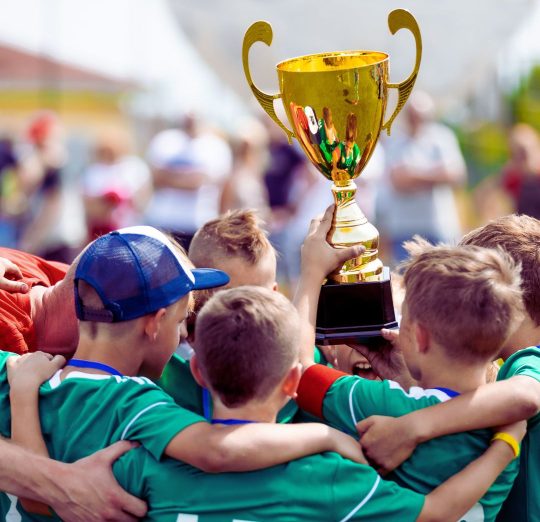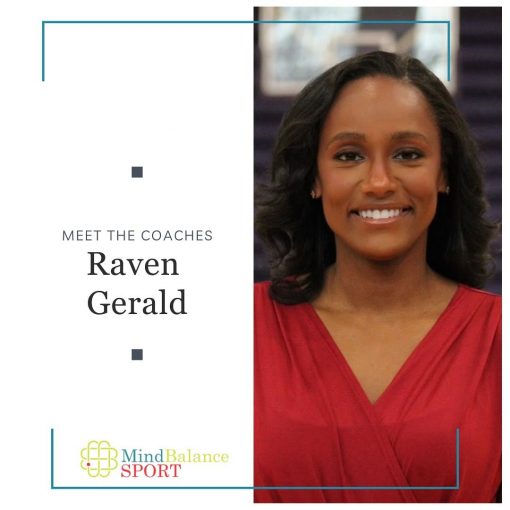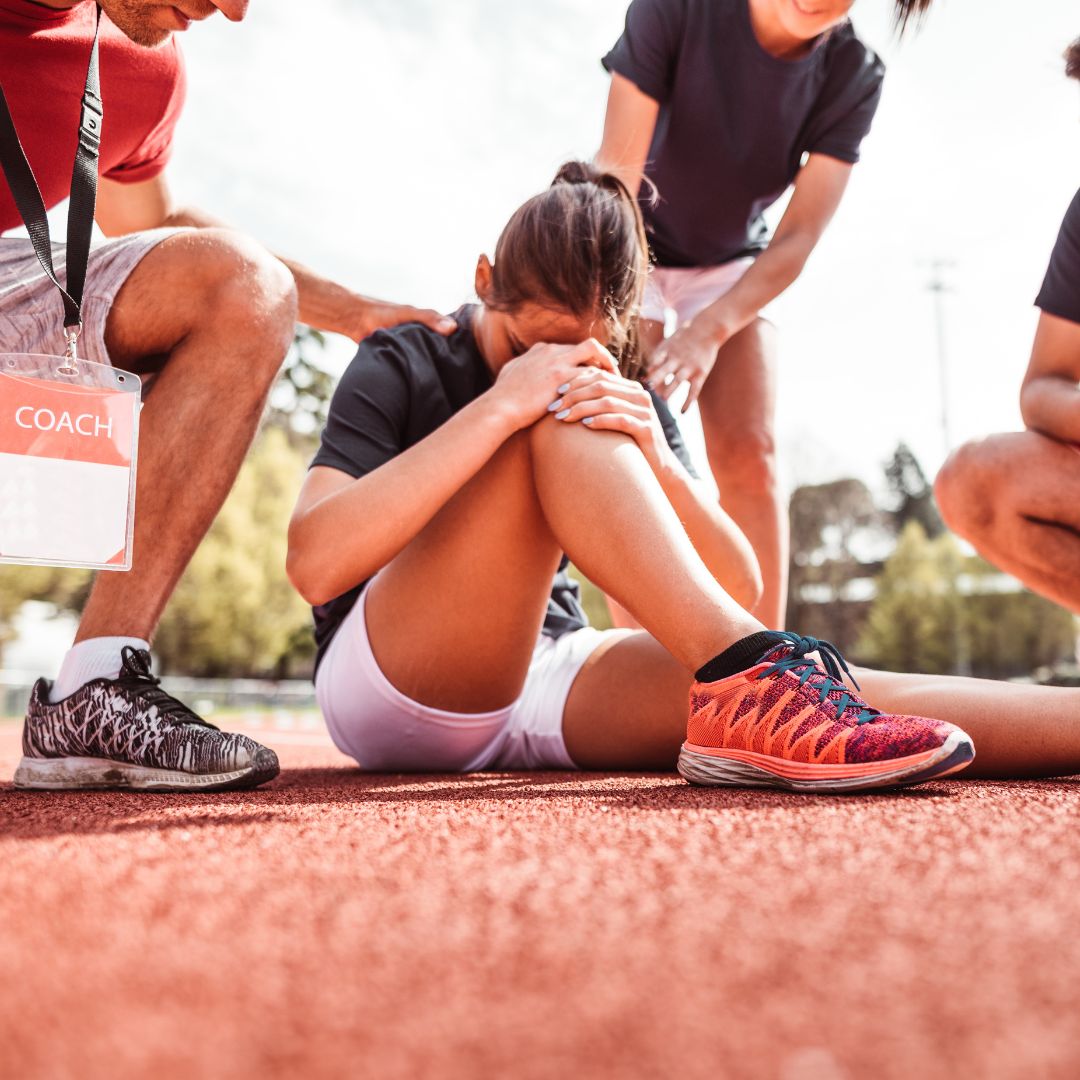Sports Psychologist in Arlington, VA
You want to work on your mental game, but how do you train your brain?
At MindBalanceSPORT, We Train The Other Half Of The Athlete.
You want to work on your mental game, but how do you train your brain?
Mental training does not get much media attention, but at MindBalanceSPORT we know it is a game changer. The mental skills you will learn at MindBalanceSPORT are generalizable in the classroom, in sport and in life!
We know that mental skills can be successfully taught, even at an early age.

Our Services
Meet the Team





testimonials
Athlete Stories: Real Comebacks, Real Results

Emma, a high school basketball player, tore her ACL in the middle of her junior season. After surgery, she struggled with self-doubt and fear every time she stepped back on the court. Through sport psychology training, she learned visualization techniques and confidence-building exercises that helped her regain trust in her knee. When she returned for her senior season, she didn’t just play—she led her team to the playoffs.

Carlos, a soccer player, suffered a stress fracture in his foot and had to miss half of his season. Sitting out was mentally tougher than the pain itself. We worked on mental engagement strategies to keep him sharp—studying game film, setting small rehab goals, and using mental imagery to stay ready. When he was finally cleared, his confidence never wavered.

Jordan, a track athlete, strained her hamstring before a major competition. She feared losing speed and falling behind competitors. Instead of focusing on what she couldn’t do, we redirected her energy toward mental preparation, using self-talk and goal setting to keep her confidence strong. When she returned, she set a new personal record.
EXCELLENTTrustindex verifies that the original source of the review is Google. It was a great help to my 14-year-old competitive volleyball player daughter. Raven was great to understand and connect with her from start to end. We will continue with our sessions as needed.Trustindex verifies that the original source of the review is Google. Great results! I’ve loved working with Paula. Our sessions have greatly improved both the physical and mental aspects of my tennis game. I’m playing better and having more fun! Highly recommend!Trustindex verifies that the original source of the review is Google. Our family had a wonderful experience with Paula Castro. We needed some additional confidence in a particular area/sport and Paula helped get us there. We know who to turn to if we need help again. She’s been a Blessing. Thank you, Paula!Trustindex verifies that the original source of the review is Google. I highly recommend MindBalanceSPORT. Our son works with John Howard. John is very caring, positive, and effective at working with teenagers. John is an adept listener and created an individualized plan tailored to our son’s personality. After just a few sessions with John, we noticed a significant improvement in our son’s motivation and mental approach to sports and life in general. Our son looks forward to meeting with John and tells us that he benefits immensely from their connection.Trustindex verifies that the original source of the review is Google. Paula Castro is an outstanding professional on the field. She has helped my daughter improve her confidence, preparation, and thanks to these session she feels more prepared and motivated. Paula takes the time also to share (what she can) and align with us as parents to be on the same page. Strongly recommended!Trustindex verifies that the original source of the review is Google. MineBalanceSPORT has quickly become the area's expert in sports psychology. Their reputation is well deserved given their incredibly thoughtful, scientifically based approaches to treating performance-related conditions, and I have only heard glowing, positive feedback from those who have engaged in their program. I will also add that Drs. Jones and Chirby presented to us (our group comprises of 15+ doctors and masters level clinicans) about their program and impressed us all with their level of expertise and passion for this field. I give them my highest recommendation.Trustindex verifies that the original source of the review is Google. Dr. Jones was beyond helpful to me throughout our time together. If you are an athlete and you need advice or assistance this is the place to come to. She completely changed my outlook and mindset in a time when I needed her most. I look forward to staying in touch with her and am forever thankful for her expertise.Trustindex verifies that the original source of the review is Google. Paula has been a huge help with my daughter Morgan coming off her injury. It’s been 18 months since she’s played basketball and she’s thriving because I know Paula is guiding her the right direction. As a mother, I’m extremely gratefulTrustindex verifies that the original source of the review is Google. If you are looking for Amazing Psychologists who can help support you in your sports performance, you need to call MindBalanceSPORT! Dr. Chirby and her colleagues are a wealth of knowledge, they have so many helpful techniques for mind balance, and they have so much compassion for the communities that they serve! Highly recommend!!!
Recovery
While Everyone Has A Physical Ceiling, There Is No Mental Ceiling.
How Sports Psychologists in Arlington, VA Promote Mental Health Awareness
How Sports Psychologists in Arlington, VA Promote Mental Health Awareness
Sports psychologists play a vital role in fostering mental health awareness within the athletic community. Beyond improving performance, they aim to address the often-overlooked psychological challenges athletes face. By creating an environment that prioritizes mental well-being, sports psychologists not only enhance individual and team performance but also contribute to a healthier overall sports culture.
Finding the Right Sports Psychologist Near Me: Enhancing Mental Health Awareness
- Many athletes hesitate to seek help due to fear of being judged or misunderstood. Sports psychologists work to normalize mental health conversations within teams and organizations, making it easier for athletes to speak openly about their struggles.
- They advocate for integrating discussions about mental health into routine training sessions and team meetings.
- Educating coaches, athletes, and staff about the warning signs of common issues like anxiety, depression, or burnout.
- Offering practical strategies for managing stress and maintaining emotional balance during high-pressure situations.
- Establishing confidential environments where athletes can discuss personal challenges without fear of repercussions.
- Encouraging open dialogue with peers and staff about shared experiences related to performance pressure or injuries.
Benefits of Raising Mental Health Awareness in Sports
| Benefit | Description |
| Improved Performance | Athletes perform better when they feel mentally balanced and supported. |
| Stronger Team Dynamics | Teams with open communication foster trust and collaboration among members. |
| Reduced Risk of Burnout | Acknowledging psychological strain helps prevent long-term exhaustion. |
| Enhanced Emotional Resilience | Athletes learn coping mechanisms for handling setbacks effectively. |
Initiatives Sports Psychologists Promote
- Organizing workshops on stress management techniques such as mindfulness or visualization exercises.
- Collaborating with team leaders to integrate positive reinforcement practices into training routines.
- Developing tailored mental health plans for individual athletes based on their unique needs.
The Broader Impact on Athletic Culture
The involvement of sports psychologists extends beyond individual well-being; it influences how teams and organizations perceive mental health as a whole. By advocating for institutional support systems like counseling services or peer mentorship programs, they encourage a shift toward a more empathetic approach in sports culture.
Promoting mental health awareness is not merely about addressing crises—it’s also about proactively equipping athletes with tools that sustain their well-being throughout their careers. This forward-thinking perspective ensures that success is not achieved at the expense of an athlete’s mental health but rather alongside it.
How Sports Counselling in Arlington, VA Helps Athletes Overcome Mental Barriers and Improve Performance
Sports psychologists play a pivotal role in assisting athletes to break through mental barriers that may hinder their performance. By addressing psychological challenges and building mental skills, these professionals empower athletes to achieve their full potential both on and off the field. Below are some of the key ways sports psychologists help athletes overcome these barriers and enhance their performance.
Identifying and Addressing Mental Barriers
- One-on-One Counseling: Individual sessions allow for open discussions about personal struggles affecting performance.
- Performance Assessments: Tools like self-reports or interviews help uncover patterns of negative thoughts or behaviors.
- Observational Analysis: Reviewing an athlete’s behavior during games or practice to spot potential mental roadblocks.
Common mental barriers include: | Mental Barrier | Description | |—————————|———————————————-| | Fear of Failure | Anxiety about making mistakes or letting down others. | | Overthinking | Paralysis by analysis during critical moments. | | Performance Anxiety | Excessive worry about performing well under pressure. | | Negative Self-Talk | Internal criticism that reduces confidence. |
Techniques Used to Break Through Barriers
- Replacing negative thoughts with constructive ones.
- Encouraging athletes to focus on factors they can control.
- Techniques such as meditation or breathing exercises to improve focus and reduce stress.
- Teaching athletes how to stay present during high-pressure moments.
- Guiding athletes in imagining themselves succeeding in specific scenarios.
- Strengthening the connection between mind and body performance.
- Helping set realistic short-term and long-term goals.
- Breaking down large goals into actionable steps.
- Developing pre-game routines that promote calmness.
- Introducing relaxation exercises for post-performance recovery.
Building Confidence Through Incremental Success
- Tracking milestones achieved in training sessions or competitions.
- Reinforcing positive behaviors consistently over time.
- Encouraging self-reflection after each performance for learning opportunities.
Enhancing Team Dynamics
- Conflict resolution strategies between teammates or coaches.
- Workshops that build trust among team members.
- Exercises designed to improve collective focus under pressure.
Sports psychologists not only address immediate challenges but also equip athletes with tools they can rely on throughout their careers. Overcoming mental blocks is integral to achieving consistent peak performance—unlocking an athlete’s full potential starts from within the mind.
Unlocking Potential: Performance Psychology in Arlington, VA to Help Athletes Overcome Mental Barriers
Sports psychologists play a critical role in enabling athletes to overcome mental barriers that can hinder their performance. These professionals utilize evidence-based strategies and personalized approaches to help athletes break through psychological challenges, build mental resilience, and achieve their full potential.
Common Mental Barriers Faced by Athletes
- Performance Anxiety: The fear of failure or underperforming in high-pressure situations.
- Negative Self-Talk: Persistent self-doubt or internal criticism that undermines confidence.
- Fear of Injury or Re-injury: A heightened sense of caution following past physical injuries.
- Motivational Slumps: Periods where athletes struggle to find focus or enthusiasm for training and competition.
- Difficulty Managing Stress Expectations: Pressure from coaches, teammates, media, or personal goals.
Strategies Used by Sports Psychologists
- Helps athletes reframe negative thought patterns into constructive ones.
- Focuses on developing positive coping mechanisms for stress and anxiety.
- Encourages athletes to mentally rehearse successful performances.
- Builds neural pathways associated with confidence and precision.
- Teaches strategies like meditation or deep breathing to improve focus.
- Helps athletes stay present during competitions rather than dwelling on mistakes.
- Breaks long-term objectives into smaller, achievable milestones.
- Encourages intrinsic motivation by aligning goals with personal values.
- Utilizes data-driven insights into physiological responses such as heart rate or muscle tension.
- Trains athletes to regulate stress levels during critical moments.
The Benefits of Mental Barrier Breakthroughs
| Benefit | Description |
| Improved Concentration | Enhanced ability to focus on tasks despite distractions during training or competition. |
| Increased Confidence | Stronger belief in one’s skills, leading to better decision-making under pressure. |
| Better Stress Management | Reduced stress levels contribute to sustained energy throughout competitions. |
| Greater Emotional Resilience | Ability to recover quickly from setbacks like poor performances or injuries. |
| Optimal Team Dynamics | Improved communication skills promote better collaboration with teammates and coaches alike. |
Real-Life Example
One example of this process in action is seen when an athlete plagued by pre-performance anxiety learns visualization techniques through sessions with a sports psychologist. Over time, they become adept at imagining their success before crucial games, reducing stress levels while improving their precision during matches.
By systematically addressing the psychological factors influencing athletic performance, sports psychologists empower individuals not only as competitors but also as resilient individuals capable of confronting challenges beyond the sporting arena.
Maximizing Sport Performance Training in Arlington, VA Through Mental Health Strategies
In the world of sports, the physical demands placed on athletes are immense. While physical conditioning and technical skill are critical, the mental health of athletes often determines their long-term success and well-being. Incorporating mental health strategies into athletic training is a crucial step toward ensuring peak performance, resilience, and overall life balance for athletes.
Why Mental Health Strategies Matter in Athletics
- Burnout: Overtraining and lack of recovery time can result in both physical and emotional exhaustion.
- Performance Anxiety: Fear of failure or the need to constantly succeed can significantly impact confidence on the field or court.
- Mental Health Challenges: Conditions such as depression, anxiety disorders, and stress-related issues are common among athletes who do not address their mental well-being.
By integrating mental health strategies into training programs, teams and organizations can mitigate these risks while empowering athletes to thrive under pressure.
Key Benefits of Integrating Mental Health Practices
- Enhanced Focus and Concentration: Athletes who practice mindfulness techniques or engage in visualization exercises often report improved focus during high-stakes moments.
- Better Emotional Regulation: Coping mechanisms such as cognitive reframing help athletes manage emotions like frustration or disappointment effectively.
- Increased Resilience: Strategies that promote self-confidence build an athlete’s ability to bounce back from setbacks or injuries quickly.
- Sustainable Performance Growth: By addressing both physical and mental needs simultaneously, athletes often experience balanced growth without risking burnout.
Examples of Mental Health Strategies for Athletes
| Strategy | Description | Benefits |
| Mindfulness Meditation | Practicing being present in the moment through guided meditation or breathing exercises | Reduces stress levels; improves focus; cultivates a sense of calm |
| Goal Setting | Establishing measurable short-term and long-term goals | Increases motivation; provides clear direction |
| Cognitive Behavioral Techniques | Identifying negative thought patterns and replacing them with constructive ones | Enhances self-belief; reduces anxiety |
| Visualization | Mentally rehearsing game scenarios to prepare for competition | Builds confidence; familiarizes the brain with potential challenges |
| Recovery Planning | Allocating time for rest, relaxation, and reflection as part of training cycles | Prevents burnout; promotes holistic well-being |
How Coaches Can Support Mental Health Integration
- Encourage open conversations about mental health without stigma.
- Collaborate with sports psychologists to provide tailored resources for individual athletes.
- Integrate recovery time into training schedules as a non-negotiable aspect.
- Monitor signs of emotional fatigue or distress among team members.
Long-Term Impacts on Athletic Culture
When mental health strategies become an integral part of athletic training, they don’t just benefit individual athletes—they also foster healthier team dynamics and contribute to a positive organizational culture within sports institutions. Teams that prioritize psychological well-being demonstrate greater cohesion, adaptability during challenges, and an overall commitment to sustainable success over short-term gains.
Techniques and Tools a Sports Mental Coach in Arlington, VA Uses to Support Athletes
Sports psychologists employ a variety of techniques and tools to help athletes develop mental resilience, improve focus, manage stress, and enhance overall performance. These methods are rooted in psychological theory and tailored to the unique needs of each athlete, ensuring their mental health is supported alongside physical training. Below is an overview of some key techniques and tools utilized by sports psychologists.
1. Goal Setting and Motivation Strategies
- Specific: Clearly define what the athlete wants to achieve.
- Measurable: Ensure progress can be tracked.
- Achievable: Goals should be challenging but realistic.
- Relevant: Align with the athlete’s broader aspirations.
- Time-bound: Include a deadline for goal completion.
- Break down long-term objectives into smaller milestones to maintain motivation.
- Use visualization techniques to reinforce commitment toward goals.
2. Mental Imagery and Visualization
- Visualizing successful performances during critical moments (e.g., penalty shots or sprints).
- Rehearsing specific movements or strategies in sport-specific contexts.
- Managing pre-game nerves by picturing calmness under pressure.
Research shows that combining mental imagery with physical practice can improve skill acquisition.
3. Mindfulness-Based Stress Reduction (MBSR)
- Deep breathing exercises to regulate physiological responses under pressure.
- Body scanning routines to increase awareness of muscle tension.
- Guided mindfulness meditation apps or exercises tailored for athletes’ schedules.
Mindfulness not only helps athletes stay present during competitions but also aids recovery from stressful events.
4. Cognitive Behavioral Techniques (CBT)
| Technique | Purpose |
| Cognitive Restructuring | Identifying and reframing self-doubt or destructive thoughts |
| Thought Stopping | Interrupting negative internal dialogue during high-pressure moments |
| Positive Self-Talk | Encouraging affirmations to build confidence |
For example, if an athlete tends to think, “I always choke under pressure,” a psychologist might work with them on replacing it with a positive statement like, “I’m prepared for this challenge.”
5. Biofeedback Training
- Heart rate monitors for identifying stress levels.
- EMG (electromyography) devices for detecting muscle tension.
- Skin conductance sensors for tracking emotional arousal.
This data can help athletes implement relaxation strategies when necessary, ensuring they remain composed during critical moments.
6. Team Dynamics Coaching
- Conflict resolution workshops for addressing interpersonal challenges within teams.
- Role clarity exercises where each team member understands their contribution.
- Trust-building activities designed specifically for athletic environments.
These efforts ensure cohesion among players, which is vital for team success.
By leveraging these evidence-based techniques and tools, sports psychologists play an essential role in equipping athletes with the mental skills needed not only to perform at their best but also maintain long-term well-being throughout their careers. Each strategy is carefully adjusted depending on individual needs or the demands of specific sports disciplines—offering holistic support that complements physical training regimens effectively.
How Sports Psychiatry in Arlington, VA Can Transform an Athlete’s Career
1. Enhanced Performance Through Mental Conditioning
Sports psychologists provide athletes with tools to improve focus, manage pressure, and enhance decision-making. These mental conditioning strategies enable athletes to perform at their peak during competition.
- Improved concentration: Techniques like mindfulness and visualization help athletes block distractions and stay focused on their goals.
- Stress management: Learning how to handle high-pressure situations reduces performance anxiety.
- Goal-setting frameworks: Sports psychologists assist athletes in setting clear, measurable, and achievable goals that align with their long-term vision.
2. Building Resilience Against Setbacks
Every athlete faces setbacks such as injuries, losses, or performance slumps. Sports psychologists teach resilience strategies that empower athletes to recover mentally and physically from challenges.
- Reframing negative experiences into growth opportunities.
- Developing positive self-talk habits to combat self-doubt.
- Using techniques like cognitive restructuring to handle failure constructively.
3. Enhancing Team Dynamics
For team sports in particular, collaboration is essential for success. Sports psychologists often work not just with individual athletes but also with teams to improve communication and cohesiveness.
| Key Area | Benefit |
| Communication Skills | Encourages open dialogue between teammates and coaches |
| Role Clarity | Helps players understand how they contribute individually while supporting team objectives |
| Conflict Resolution | Reduces tension that may arise during high-stakes situations |
By fostering trust and understanding within the group, teams can work more effectively toward shared goals.
4. Long-Term Mental Health Support
Athletes operate under immense physical and mental strain throughout their careers. Sports psychologists play a crucial role in maintaining emotional balance by addressing issues such as burnout or identity crises post-retirement.
Key mental health benefits include:
– Guidance on coping mechanisms for stress outside of sports (e.g., media scrutiny).
– Preventing conditions like depression or anxiety through proactive interventions. – Supporting transitions after retirement by helping athletes redefine their purpose beyond competition.
5. Tailored Training for Individual Needs
Each athlete has unique challenges requiring personalized psychological tools. Sports psychologists create customized plans based on the individual’s personality, sport demands, or current struggles.
Examples of tailored interventions:
– Confidence-building exercises for those struggling with self-belief. – Routine optimization for improved pre-game preparation. – Visualization practices specific to high-pressure moments in competition.
Final Thoughts on Collaboration
Partnering with a sports psychologist is not limited to elite-level competitors; it benefits athletes at all levels seeking improvement both on and off the field. By addressing mental barriers alongside physical ones, this collaboration provides a holistic approach to achieving sustainable success in any stage of an athletic career.








